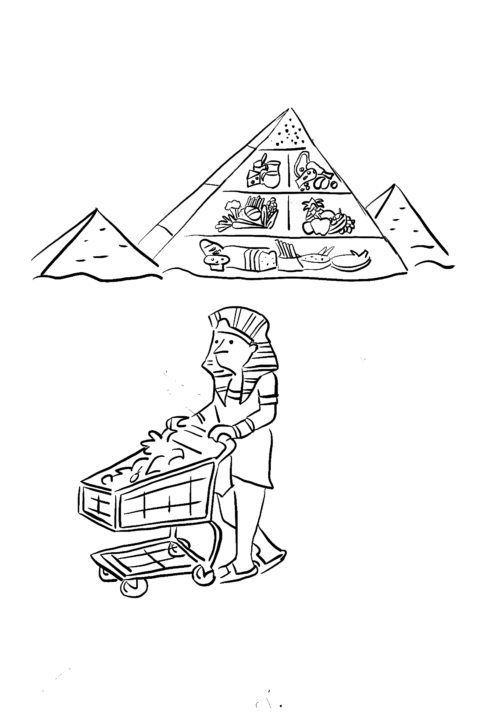Whether it be reunions in Annenberg, dining hall takeout, or a late-night run to Pinocchio’s, food is a pervasive aspect of the college experience. But for some at Harvard, food is more than just a backdrop to busy student life—it’s an entry point into deeper questions about sustainability, health, and community.
As a student-led initiative under Harvard University Dining Services that uses food as a lens for learning, the Harvard Food Literacy Project recognizes the unique importance of cuisine. From hands-on cooking classes to public speaker series and food system research projects, the FLP invites students to reimagine how they engage with what’s on their plate—and how it got there.
At its core, the FLP focuses on four main topics: environmental sustainability, nutrition, food preparation, and food’s relationship with the community. Each year from May to June, the FLP hires undergraduate fellows to represent their House or first-year community, attend weekly in-person meetings, and organize food education events. Fellows from each residential House plan events or personal projects each semester—anything from trips to Allandale Farm, where HUDS sources fresh produce, or workshops with local food entrepreneurs.
For FLP student captain Amarachi Nwogu ’25, a senior in Lowell House concentrating in Integrative Biology, the FLP has been a four-year journey of exploration and impact. “It was actually the first organization I joined at Harvard,” she recalled. “I was already quite interested in food and the environment, specifically issues of food insecurity and how that impacts [the] community.”
Nwogu helps lead a team of students in organizing events, managing personal projects, and hosting educational programs to facilitate campus-wide dialogue around food.
“Over the years, I’ve put on quite a lot of events, but I think one of my favorites was a collaboration with the Little Crêpe Café,” Nwogu said. On this trip, she learned the intricacies of crepe-making and hosted discussions on the nature of operating a small business in the food industry. “I really enjoyed getting to talk to people in the food industry from our greater Cambridge community, learning how they are integrated parts of our community, and learning about creating a small business in general,” Nwogu said.
The FLP’s approach to nutritional education is intentionally interdisciplinary. Fellows and members are not required to already be interested in nutrition or agriculture in particular. Students interested in business, technology, sustainability, public health, or even cooking can all find a space to learn and grow.
In addition to public events, FLP fellows can work on semester-long personal projects, often in small teams of up to three students. The projects often involve digging deeper into issues systemic to the food industry, including food insecurity, agricultural sustainability, and cultural identity. “The FLP really encourages not only academic learning but experiential learning,” Nwogu said.
Because the FLP is housed by HUDS, there are continuous opportunities for collaboration with staff and managers from dining services on personal projects and initiatives. “The food system is so integral to how we define our identities, our cultures…even how a geographic area could be defined,” Nwogu shared, highlighting the importance of Harvard supporting programs like the FLP.
The FLP also connects campus dining to the broader Boston and Cambridge communities through Heat-N-Eats, a food recovery initiative that packages surplus food from Annenberg into balanced, microwavable meals for local shelters, residential hotels, and food banks via the nonprofit Food for Free. “These are meals that contain a protein, a vegetable, a starch, and they’re packaged pretty professionally,” Nwogu said.
Beyond these specific events and projects, on a larger scale, the FLP encourages Harvard College undergraduates to rethink the way they view and relate to food on campus. Within the buffet-style setup of the Harvard dining halls, it is often difficult to make conscious eating choices in comparison to when a student would cook and prepare a meal themselves. “It’s pretty easy to overlook the process of the system of food being prepared from being grown or raised, distributed, processed, marketed, prepared, and then consumed…I think we have the tendency to focus on just the consumption side,” Nwogu added.
Nwogu emphasized that Harvard students in particular can benefit from the opportunity to engage more with the systems that feed us. “I think it’s also an opportunity for Harvard students to learn more about HUDS and to actually engage with HUDS workers and dining hall staff,” she said. “I’ve been able to get connected with the people who are so often behind the scenes.”
Ultimately, the FLP hopes to demonstrate to its members and peripheral participants that, to fully engage with the liberal arts curriculum of Harvard, one must pursue didactic experience beyond the classroom. The FLP believes that understanding the complex process that food undergoes as it travels from farm to table will provide undergraduates with not only a deeper cultural and scientific understanding of food but a chance to better connect with the community both inside and outside of campus. Harvard’s support of these programs ensures students can truly grasp this crucial part of the Harvard College identity.
Interested students can subscribe to Eater’s Digest, a weekly newsletter of upcoming FLP events and campus food news, or attend any of the public speaker sessions. For those looking to take on a more active role, applications to become a fellow usually open in the summer for the fall semester. Freshmen can apply to be first-year fellows, upperclassmen can apply to represent their House, and there are also Food Recovery Fellow positions for students to lead the Heat-N-Eats volunteering program.
David Daniel ’28 (david_daniel@college.harvard.edu) writes News for the Harvard Independent.

